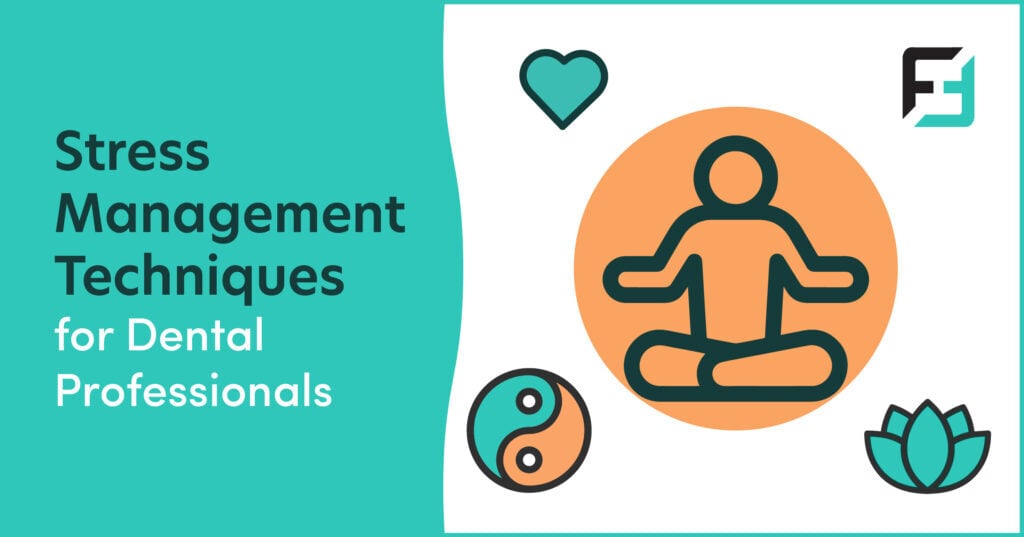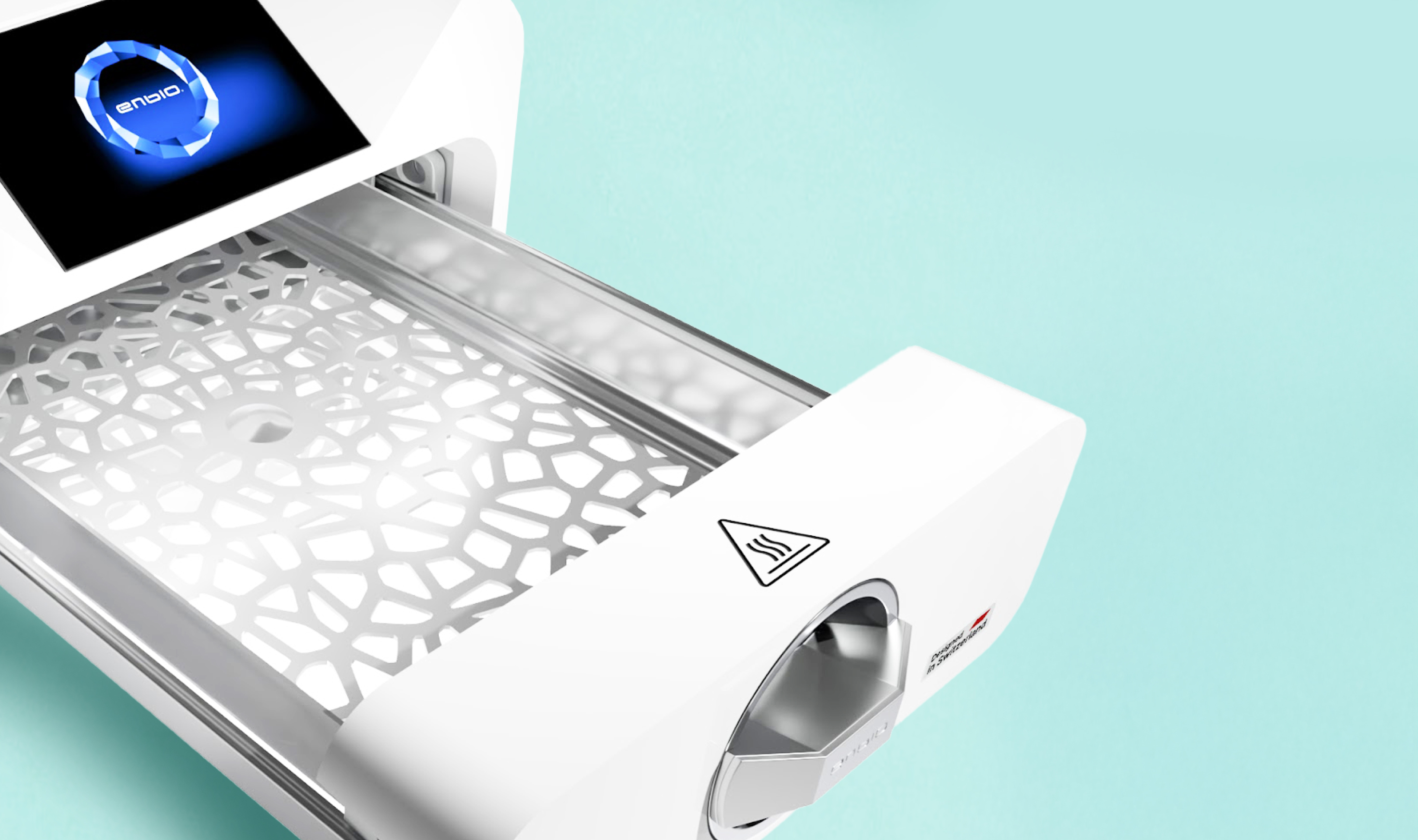Stress Management Techniques for Professionals Working in Dentistry
Any working individual is no stranger to stress in the workplace; however, dental professionals have some of the highest reported stress levels. Stress in dentistry is a pressing issue, and dentists particularly have one of the highest rates of suicide than any other profession. As a practicing dental professional, there are a lot of built-in stresses that come with the job, such as long hours, time management, managing patient expectations, and staying up to date with the latest dental techniques. Since April is Stress Awareness Month, we believe it is a perfect time to highlight how dental professionals can manage stress.
Dental professionals, such as dentists, dental hygienists, and dental assistants, face unique challenges in their workplace that can cause stress to build up over time. This workplace stress can begin to affect their physical and mental well-being, which could ultimately lead them to become increasingly unhappy in their work and life. Chronic stress can lead to physical symptoms like headaches, muscle tension, and fatigue, while it can also affect mental health leading to anxiety, depression, and burnout. Prolonged stress can also weaken the immune system, making you more susceptible to illness and infection.
As a result, it is crucial to learn to manage stress in dentistry because of the slew of negative consequences it can cause if left unchecked. Fortunately, five stress management techniques can help dental professionals manage the demands of the job and improve their overall physical and mental health.
Time Management
Time management is essential to run a successful dental office between seeing patients, managing staff, ordering supplies, keeping equipment and education up to date, and much more. Without managing your time, you risk long, unmanageable hours, loss of sleep, and heightened stress to keep up with the job's demands. Effective time management means prioritizing tasks, organizing your schedule, and setting realistic and achievable goals to accomplish each day.
Prioritizing Tasks
Start each day by writing a list of your most important tasks and prioritizing them based on importance and urgency. This way, you can focus and complete the most pressing tasks first to avoid becoming overwhelmed later.
Use a Calendar or Planner
Often you can become overwhelmed by the need to be in multiple places at once due to scheduling conflicts or pending deadlines. By using a calendar or planner, you can keep track of important deadlines and avoid overbooking yourself, ensuring that you have the time to complete each task.
Delegate to Staff
Delegate tasks to your colleagues and staff whenever possible to ensure the work is shared and manageable for everyone in the office. Delegating work can free up time for more critical assignments while reducing your workload and empowering your staff.
minimize Distractions
Distractions at work are very individual-specific but generally include social media, email notifications, and personal messages. Avoid your phone as much as possible during working hours, and set aside specific times to check your emails, social media, or text messages.
Take Breaks
Dental professionals often work incredibly long hours, taking short breaks throughout the day imperative to recharge and stay focused and alert all day. During these breaks, you should prioritize eating and drinking water, stretching exercises, or even stepping outside to take a short walk and get fresh air.
Exercise Daily
Working in dentistry can be just as physically demanding as mentally and emotionally exhausting. A dental professional spends long hours standing, leaning over patients, and performing repetitive motions. The physical stress of the job can lead to tension and pain in your muscles, particularly in the back, neck, wrist, and shoulders. Exercise and simple stretches can be a great way to reduce physical training, maintain a healthy weight, and increase endurance to help dental professionals perform their job even better. Furthermore, staying active can improve mental well-being with better sleep, reduced stress from the endorphins released, and increased energy levels.
Start Small
Ensure that you start small with manageable goals if you are new to exercise or have not been active recently. If you start slow, you avoid the risk of over-exerting or hurting yourself more. You can start with a short walk on your lunch break outside or gentle stretches before, during, or after work. You can check out great stretches for dental professionals here.
Be Consistent
The key to successful exercise is consistency and realistic goals that you can achieve each day. Staying active should become a regular part of your routine. To help you stay on track, invite your colleagues to join you or mix it up with new stretches or types of exercise to keep things interesting and prevent boredom. You can also enroll in a class to hold yourself accountable to a particular time and place.
Get Outside
Take advantage of the outdoors and walk or run in a local park or nature reserve. Spending time outdoors can give dental professionals the time to reflect and relax outside the workplace. Fresh air and sunlight have proven benefits for overall mood, energy levels, and physical and mental health.
Work-Life Balance
One of the biggest threats that can lead to workplace stress in dentistry is that the job can become all-consuming, which leads to burnout and potentially high staff turnover rates. It can become a vicious cycle that puts more and more stress on the remaining staff in the dental office. As a result, dental professionals must maintain a good work-life balance to prevent professional and personal burnout, which will also benefit your overall well-being.
Set Boundaries
An important part of maintaining a good work-life balance as a dental professional is to set clear boundaries between work and personal time. We all know the saying, ‘do not bring your work home,’ and as cliché as it sounds, it is true. Leaving work at the office can mean setting specific times when you will check work emails or calls or taking regular breaks throughout the workday to recharge.
Prioritize Self-Care
Taking care of yourself and prioritizing personal time is crucial to ensure a healthy work-life balance. Self-care can have many forms, such as exercise, meditation, watching a movie, and any other activity that helps you relax and disconnect.
Learn to Say 'No'
Dental professionals often feel pressure to work more or accommodate every patient request. Learning to say ‘no’ when necessary is a helpful tool to maintain a good work-life balance, a manageable work schedule, and a happy, stress-free working environment.
Cultivate Supportive Relationships
Surrounding yourself with supportive people can help you manage stress and maintain a strong work-life balance. A solid network of friends and family or a mentor can offer guidance and support when you struggle to balance the demands of work or your personal life.
Conclusion
How to manage stress in dentistry is a prevalent issue that requires adequate attention above and beyond one month of the year. Dental professionals face an array of challenges that are unique and specific to the work they perform. It is crucial not to let stress build up and implement simple yet helpful stress management techniques to avoid physical strain, mental decline, or burnout. By implementing stress management techniques like time management, exercise, and prioritizing work-life balance, you can reduce overall stress levels, promote physical and mental well-being, and maintain a positive, productive, and happy working environment.
This April, Frontier Dental is highlighting stress in dentistry and how to manage workplace stressors. We want to encourage anyone in dentistry to prioritize taking care of themselves, so they can continue to provide the highest level of care to their patients and themselves.




